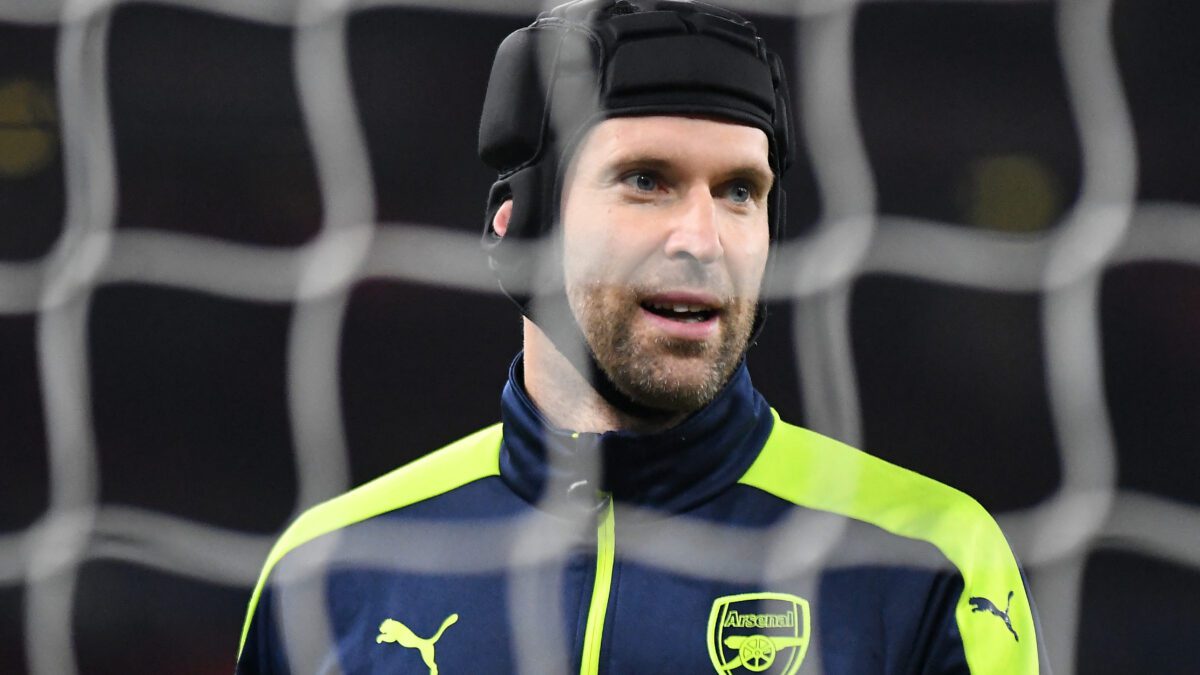Stereotypes are rarely accurate and generally best avoided – particularly if used to look down on others.
So it is that the enduring stereotype held by some of footballers whose brains reside in their feet will hopefully be kicked firmly into touch (to mix sporting metaphors) once and for all with the news that former Chelsea and Arsenal keeper Petr Cech recently graduated with an MBA.
In so doing, Cech follows in the footsteps of former Manchester City captain Vincent Kompany, who graduated with an MBA from Alliance Manchester Business School after signing up for its part-time Global MBA course a few years back.
Aside from helping banish unhelpful generalisations, what both footballers show is the attraction of an MBA to anyone wishing to purse a different career path to the one on which they had embarked initially.
After all, MBAs are designed to help people learn the management skills necessary to assume leadership positions in organisations, so it should come as no surprise to learn that MBA graduates are actively seeking to further their career or boost their earning potential.
The inclusion of an MBA qualification alongside work experience on a CV tells a potential employer that a candidate has excelled in analysis, economics, management, leadership, and communication, and is therefore suitable for assuming a leadership or management position.
And according to Jane Hammond, MBA Careers and Employability Consultant at Strathclyde University, many sports people, including some from Glasgow Warriors rugby union team, enrol on business courses “so they can use some cross-transferable skills when the time comes that they’re no longer able to operate at a high-level competitive sport.
“An MBA course can be really eye-opening and enlightening and open up lots of opportunities that people had not previously considered,” she says. “It does allow for
a much more open mindset.”
Hammond observes a huge diversity in the type of students enrolling in an MBA. In addition to sports people, she cites doctors, pharmacists, engineers, IT programmers and pilots. Strathclyde’s full-time MBA could not be more international in range: of its 92 students, none are British.
Instead, full-time MBA students sign up to Strathclyde from India, Egypt, Africa and elsewhere because, says Hammond, “they place a lot of value on having a British MBA”.
And while there are a multitude of reasons for candidates embarking on an MBA, she suggests that many do so because they want to change career path and diversify into other areas.
“Many of our MBAs learn leadership skills, entrepreneurial skills, not necessarily to set up their own business but to have an entrepreneurial mindset to help them think outside the box and be creative, to be able to problem solve and, in leadership, to be able to inspire others around them,” she says.
“There are lots of cross-transferable skills that they learn by doing an MBA. At the university, especially for our full-timers, we do a lot of business engagement so that they get an understanding of the different kinds of businesses out there and get a real eye-opener into how things work in the real world.”
An example of just how an MBA can be used to kick-start a career change can be found in the case of Italian Emanuele Tornicelli, a graduate of Turin University who earned a Bachelor of Business Law before completing his Master of International Economics and Management at Turin.
He recently returned to education to pursue his MBA at Glasgow University to further develop his management skills and entrepreneurial ambition.
Following his graduation with distinction, last October Tornicelli was appointed business development manager at Reveal Media where he is responsible for developing and managing the Italian market, especially with the police, public administration, retail companies and sports companies.
It is not inconceivable, then, that he will come into contact with fellow MBA graduates and sports people in his line of work because MBAs help broaden horizons, banish stereotypes and realise goals – whether on the pitch or in the boardroom.



